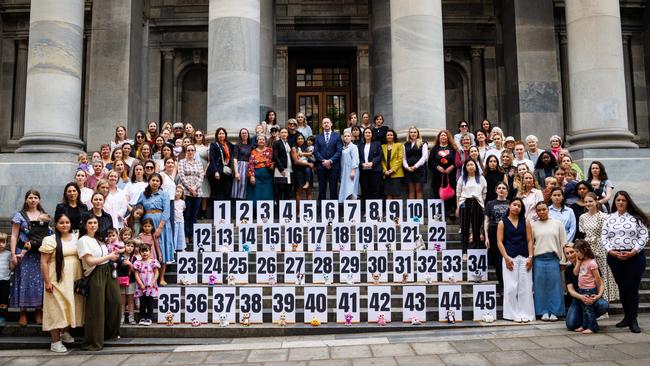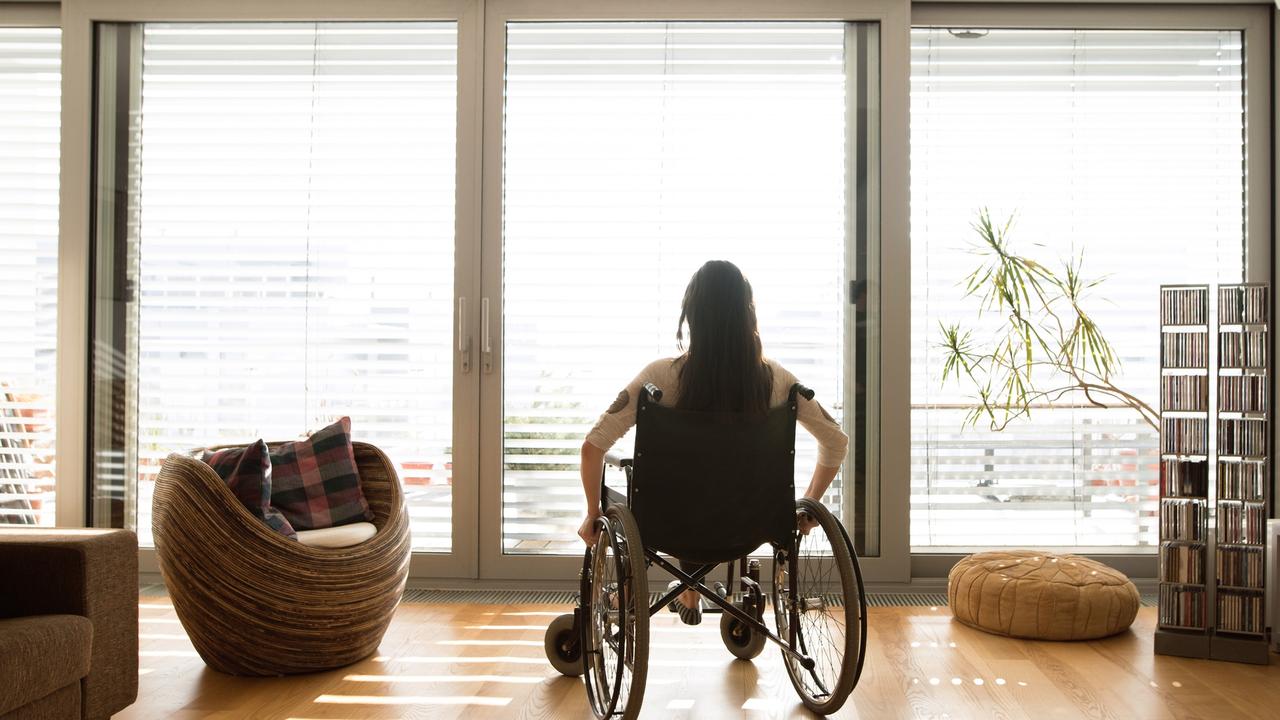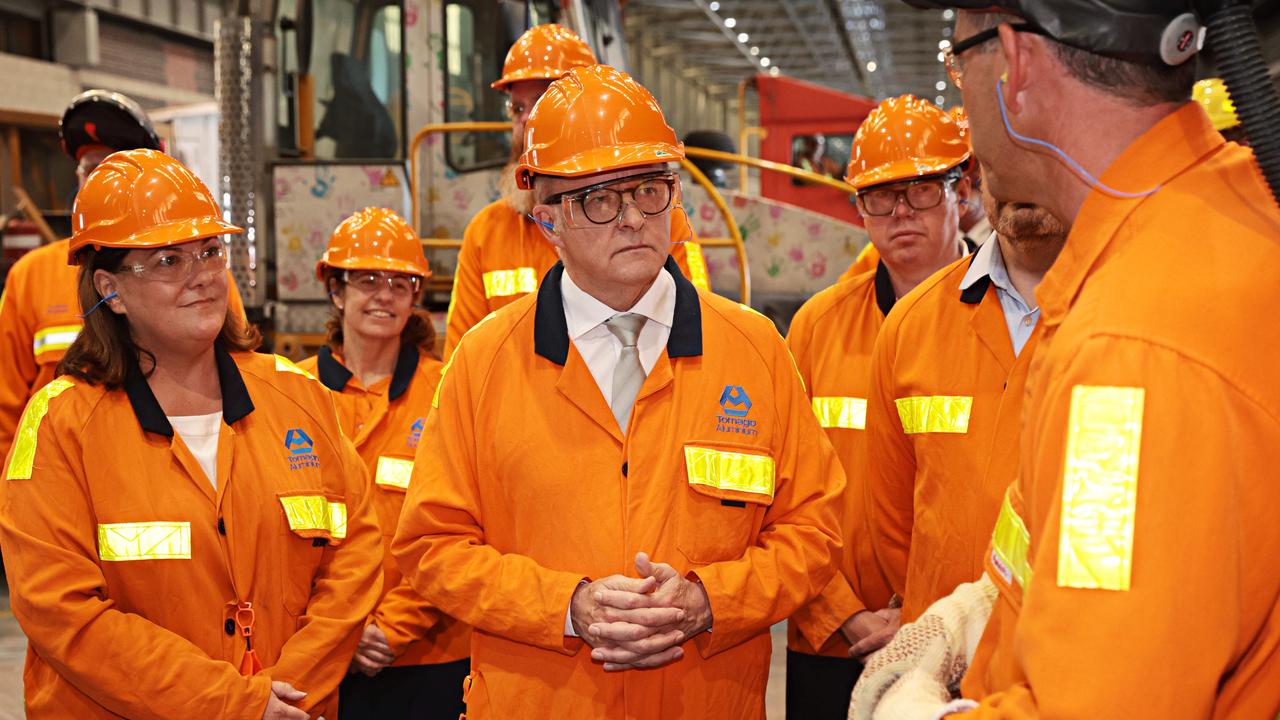‘World-first’ bill sparks new debate on abortion in South Australia
Mothers seeking terminations after 28 weeks would deliver their babies alive instead of stillborn so they could be placed for adoption, under reforms being proposed by SA Liberal MP Ben Hood.

A national debate on abortion law reform has been ignited in South Australia where there is a fresh legislative push requiring mothers seeking terminations after 28 weeks to deliver their babies alive – allowing the child to be put up for adoption.
Touted by its supporters as a “world-first”, a private member’s bill will be introduced in the state parliament on Wednesday by Liberal frontbencher Ben Hood aimed at ensuring pregnancy terminations after 27 weeks and six days are achieved through the early induction of labour.
The push has divided the South Australian Liberals, with new Opposition Leader Vincent Tarzia making clear the bill did not reflect Liberal policy and the party agreeing on Monday night to grant a conscience vote to MPs.
Supporters of the legislative shake-up to late-term abortion also said about 1500 people were expected to attend a rally on the steps of state parliament on Wednesday afternoon to coincide with the introduction of the bill.
The husband of a midwife, Mr Hood said his legislation would amend an existing 2021 state law that had allowed for terminations in limited circumstances after 22 weeks and 6 days, subject to the approval of two doctors.
Mr Hood told The Australian his bill would address an “unintended consequence” of the 2021 law given that – between July 2022 and December 2023 – the reason given for 45 out of 57 terminations beyond the 22 week and 6 day threshold was for the “physical or mental health of the pregnant person”.
This represents nearly 80 per cent of late-term abortions conducted over the 18-month period. No terminations were performed beyond the 22 week and six day threshold in order to save the life of the mother, while 12 late-term abortions were performed because of foetal anomalies.
“This bill aims to carefully balance the rights of both pregnant women and the child, particularly after 28 weeks of gestation,” Mr Hood told The Australian. “This bill provides a responsible and considered compromise – protecting the child’s right to life while respecting the mother’s choice to end her pregnancy.”
South Australian Labor Premier Peter Malinauskas said earlier this week that it was only “six weeks into Vincent Tarzia’s leadership and the only policy we’re seeing is a policy to revisit their internal problems over an abortion debate.”
Law professor at the University of Adelaide Joanna Howe helped draft Mr Hood’s live births bill and told The Australian it would strike an “effective balance between the competing interests of a mother and her viable child through ensuring that foeticide is banned and the child is delivered alive.”
Foeticide is a procedure performed by ultrasound specialists who administer an intracardiac injection, which causes the heart of the unborn child to stop beating. The child is then delivered stillborn.
Professor Howe said after 28 weeks, babies could be delivered alive instead of stillborn.
“For SA babies in the third trimester who are at a gestation where they can feel pain and would have a 96 per cent chance of survival if born alive, the injection of potassium chloride is brutal, barbaric and wholly unnecessary,” she said.
Professor Howe said the bill was drafted by a team of eight women who were “legal and medical experts, including with specialities in neonatology and obstetrics”.
Abortion advocate and retired obstetrician Brian Peat said babies born alive at 28 weeks would need to be given care and would represent a “great impost on the system”.
“A baby born at 28 weeks doesn’t go home until it’s about the due date or sometimes even longer,” he said.
Dr Peat attacked the bill, saying its true purpose was to encourage mothers to carry a child to term. “Of course, that’s what would happen in practice,” he said. “They’d be forced to go to full term because no one would want to be involved in a process which would put a baby in intensive care … It’s saying one thing, but its trying to get people to do a different thing.”



